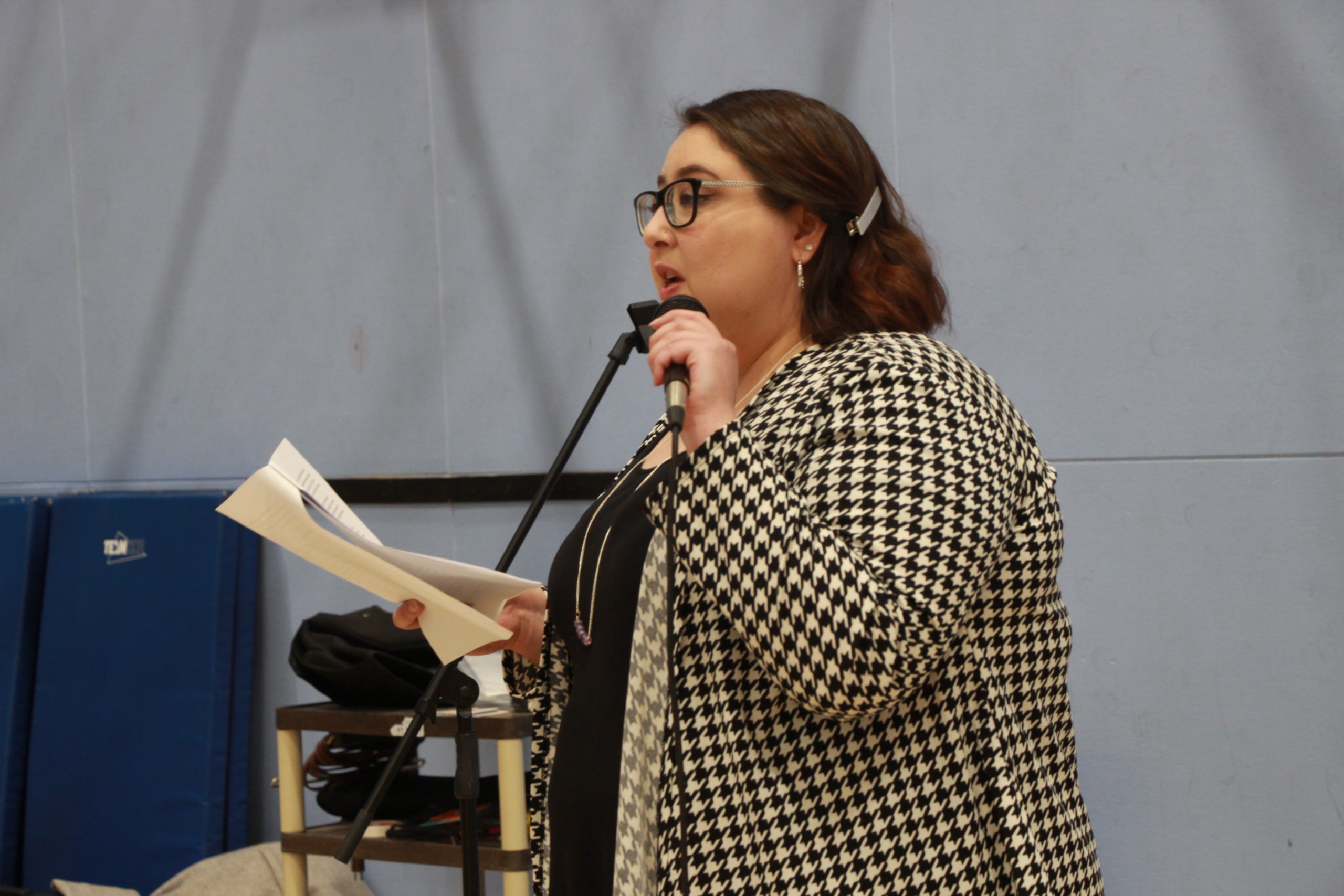Connolly Tate-Mitchell, marketing and communication coordinator for the United Way, provides information regarding assignment tasks that students do in poverty simulation.
Students from the practical nursing program worked together as Lethbridge College hosted a poverty simulation on Thursday.
Linda Sprinkle, manager of student awards and financial aid, said the poverty simulation is a large-scale production with dozens of volunteers from around campus. Approximately 90 students encounter a range of obstacles and challenges involved in navigating a month in the life of a family living in poverty.
She said students got a great experience like they would get in a real-life situation.
She said schools, work, health care services, banks, social services, community and grocery services, police officers and government employees were a part of this simulation.
Moreover, she said students are divided into 26 families and they run into different scenarios during this event.
“We want people who are working in practical nursing to be compassionate and to be understanding of people who are live in low socio-economic statistics,” Sprinkle said.
Sprinkle added after that day they have some idea of how to handle a situation like this once they get into the real world.
“Events like this are such a great events for students. The practical stuff and unplanned things create great teaching moments for students that they can get only by experiencing them,” Sprinkle said.
Donna Kalau is an instructor in the child and youth care program who assisted in the simulation. Her role throughout the event was to provide transportation passes to families who faced problems and challenges.
She said participants need to make a difficult choice and ask volunteers how they can spend these valuable and limited resources.
Moreover, she added this is a part of a class assignment, but these types of realistic situations allow them to see how they will react in real-life circumstances.
“The whole purpose of the activity is to get people who are likely to work with clients in the future and who may be living on the edge of poverty. This activity gives them a better understanding and increases compassion,” Kalau said.



